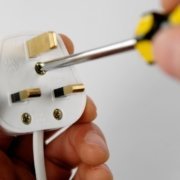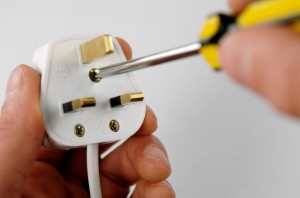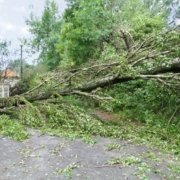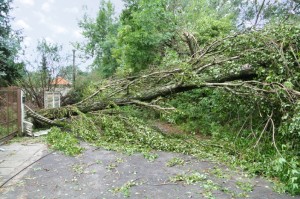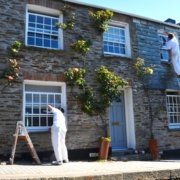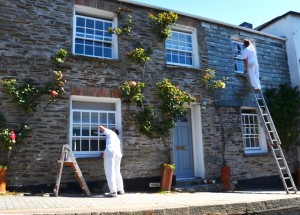Top tips for selecting a building contractor for your holiday home
 Autumn is a time when many holiday homeowners look to reinvigorate or renovate their properties for next season. Whilst some alternations will be merely superficial in nature – updating your decor or the change of an item of furniture for example, other developments may prove to be more substantial in size and require external help and advice.
Autumn is a time when many holiday homeowners look to reinvigorate or renovate their properties for next season. Whilst some alternations will be merely superficial in nature – updating your decor or the change of an item of furniture for example, other developments may prove to be more substantial in size and require external help and advice.
If you’re due to be carrying out a project on your holiday home that will require a building contractor, here’re some helpful tips to increase your chances of choosing the right one and having a project that delivers on time and within budget.
Selecting a builder
- Before contacting a builder make sure you have a full understanding of the alterations you would like to make to your holiday home. If appropriate, take professional advice and ensure that you have an outline of the works required written down.
- Some holiday homeowners will not live in close proximity to their property. If you don’t have local knowledge of reputable contractors the Federation Of National Builders (fmb.org.uk) has a list of approved builders.
- Always get more than one quote and ensure they’ve all quoted for the same thing. Large price differences can often occur when alternative approaches are suggested. If this is the case ask for the potential pros and cons of each methodology so you’re able to make an informed decision on the cost.
- Be sure to ask for the contact details of a few previous customers so you can talk to them about their experiences and the quality of work they’ve receieved.
The next steps
- It’s advised that if you’re hiring a builder for complex or major building works, you both enter into a JCT contract. These are standardised contracts, guidance notes and other forms of documentation designed specifically for the construction industry. You can find these at jctltd.co.uk
- Ensure that you and your builder complete the entire contract and that there is a thorough understanding of the arrangements of the work, along with who will pay for any specification of drawings that may be needed.
- Make sure that a payment structure is laid out and that this includes payment after the completion of certain phases of your build. Make sure these phases are specific and not ambiguous. If materials need to be purchased some builders may ask for you to pay in advance. Only consider doing this for materials that need to be specially made offsite for work to commence on your holiday home.
- If you live away from your holiday home give thought to how the project will be managed. How will you communicate with your builders? How will you ensure that supplies are ordered when they need to be and that work is on schedule and budget? Having these communication channels in place throughout the project will be vital to your success.
Do you need to tell your insurer?
If you’re having work carried out on your holiday home the need to inform your insurer will depend on the work being completed.
Works can be placed into two categories:
- Minor works: These may be completed without reference to your insurers and include when workmen are allowed into your holiday home to carry out minor repairs, alterations or general maintenance, along with any internal or external decoration when the work does not require scaffolding.
- Major works: You will need to inform your insurer when your holiday home undergoes major structural alterations or repair and when external scaffolding is to be used.
No matter the nature of the developments you are undertaking, you should always consider the impact the works will have on the potential costs of rebuilding your holiday home and ensure that you have the right level of buildings insurance cover in place.
If any of our holiday homeowners are in doubt if they should be contacting us we suggest that you do give us a call.
Boshers offer specialist holiday home insurance to owners across the UK. For more information on how a specialist insurer can help and support your holiday home business, please give us a call on 01237 429444.



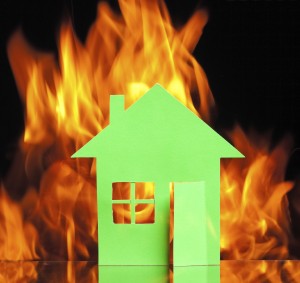 Whilst many of us will revel in the idea of a glass of wine or local ale in front of a roaring fire they do come with safety considerations and risks; there are approximately 6,000 chimney fires in England each year. We look at ways of reducing the risk of holiday home chimney fires.
Whilst many of us will revel in the idea of a glass of wine or local ale in front of a roaring fire they do come with safety considerations and risks; there are approximately 6,000 chimney fires in England each year. We look at ways of reducing the risk of holiday home chimney fires.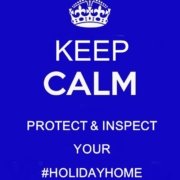
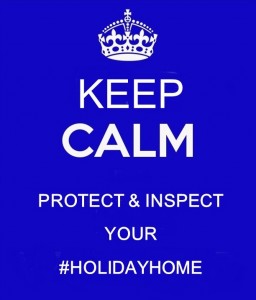 With the UK basked in what is fast becoming an Indian summer and one of the warmest July’s on records fresh in the memory it can be difficult to adjust the mind to look forward to more inclement times.
With the UK basked in what is fast becoming an Indian summer and one of the warmest July’s on records fresh in the memory it can be difficult to adjust the mind to look forward to more inclement times.
 Do you know how many light bulbs there are in your holiday home?
Do you know how many light bulbs there are in your holiday home?
 June 2014 was one of the warmest and driest in the past decade, worthy of a blog on BBQ Safety for Holiday Home Owners. Whilst in recent times the words ‘barbecue summer’ have become somewhat synonymous with an unfortunate Met Office prediction of a return to the summer sunshine of yester years only to be followed by one of the wettest summers on record.
June 2014 was one of the warmest and driest in the past decade, worthy of a blog on BBQ Safety for Holiday Home Owners. Whilst in recent times the words ‘barbecue summer’ have become somewhat synonymous with an unfortunate Met Office prediction of a return to the summer sunshine of yester years only to be followed by one of the wettest summers on record.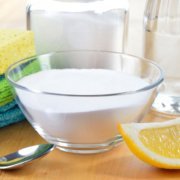
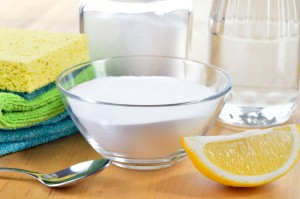 The benefits of using natural cleaning products around your holiday home
The benefits of using natural cleaning products around your holiday home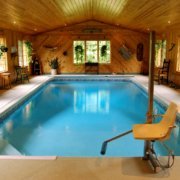
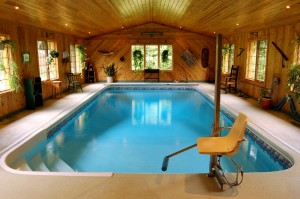 The Met Office has recently provided their weather forecast for the coming months and it’s good news. Their three-month prediction shows the UK may be set for above-average temperatures for April, May and June.
The Met Office has recently provided their weather forecast for the coming months and it’s good news. Their three-month prediction shows the UK may be set for above-average temperatures for April, May and June.